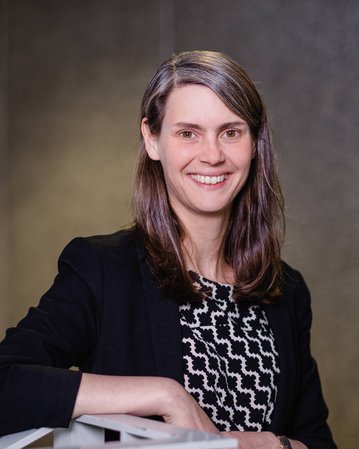Professor of early childhood development
| E-Mail: | [email protected] |
| Phone: | +49365-773-407-25 |
Professor of early childhood development
| E-Mail: | [email protected] |
| Phone: | +49365-773-407-25 |

Since December 2022, Prof. Dr. Christine Michel works as a professor of Early Child Development in the course “Inclusive Childhood Pedagogy”.
Christine Michel studied psychology at Heidelberg University. In 2016, she obtained her PhD at the Department of Developmental Psychology and Biopsychology at Heidelberg University. In her studies, she investigated (neural) attentional processes in early childhood and examined how infants learn from others. From 2016 till 2020 she conducted her research on neural correlates of social interactions and learning as a postdoc at the Max Planck Institute for Human Cognitive and Brain Sciences in Leipzig as part of the independent research group “Early Social Cognition”. Amongst other things, she investigated early social (neural) learning processes during mother-infant interactions.
2017 she finished the theoretical part of the advanced training in behavioral parent-child psychotherapy at the Zentrum für Psychologische Psychotherapie in Heidelberg.
In 2020, she moved to Leipzig University and engaged in research and teaching as a postdoc at the Department Early Childhood Development and Culture. Coming from cognition, Christine Michel broadened the scope of her research by having a closer look at emotions in her third-party funded (DFG) project “The affective mechanism underlying joint attention and joint action in infancy and toddlerhood”. The project examined affective reactions and mechanism during social interactions and prosocial situations in infants and toddlers.
Prof. Dr. Michel is a member of the German Psychological Society (DGPs) and the International Congress of Infant Studies. She frequently engages in ad-hoc reviewing, for example for Social Cognitive and Affective Neuroscience, Infancy and Child Development.
Research interests
• Social cognition in early childhood
• Affective mechanisms of social interactions and information processing
• Method development in early childhood research
* kennzeichnen geteilte Erst- oder Letztautorenschaften